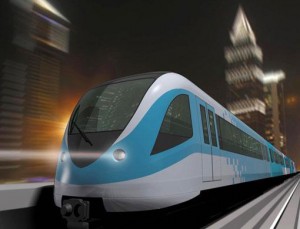By Rym Ghazal www.thenational.ae
DUBAI // China’s growing economy requires more oil from the region, and the nation vows to reciprocate by delivering more tourists, products and military know-how to the Emirates.
 “China is planning to share its military expertise with the UAE, beginning with its experience within the naval force in combating pirates,” Gao Youzhen, China’s consul general, said in an interview.
“China is planning to share its military expertise with the UAE, beginning with its experience within the naval force in combating pirates,” Gao Youzhen, China’s consul general, said in an interview.
Speaking in fluent Arabic, Mr Gao said he was “proud” to see his home country’s flag dock at Abu Dhabi’s Port Zayed when two Chinese warships arrived two weeks ago after a six-month mission in the Gulf of Aden and the Red Sea to combat piracy.
“It is the first official visit by our military to the Gulf as part of our agreements with the UAE to share our expertise with each other and strengthen our bilateral relations,” said Mr Gao. The ships were part of an international naval force in the region that protects commercial ships and oil tankers, many of which have been attacked by Somali pirates in recent years.
Crew members toured Abu Dhabi and visited its landmarks before leaving.
More ships are to follow, said the Chinese official.
Mr Gao also praised the US$4 billion (Dh14.7bn) Meydan project in China that will be a joint venture between the International Equine Group and the Chinese companies Tianjin Farm Group and Hua Zhi Jie Horse Industry Investment Co.
“It is one of the biggest projects in the world,” he said.
“It will be more than just about racing, it will be about partnerships and a whole new way of doing business.”
Chinese companies have worked on the current Meydan project in Dubai, and the “success” of that partnership is what lead to this new venture, he said.
“At a time of economic crisis, a project like this sends a positive message to the world about renewed confidence and investments.”
He said China was planning to expand every aspect of its relationship with the UAE.
Diplomatic relations between China and the UAE were established in 1984.
Sheikh Zayed visited China in 1990 and the former Chinese president Yang Shangkun visited the UAE in 1989. The current president, Hu Jintao, visited in 2007.
The most recent trip to Beijing was made last summer by Sheikh Mohammed bin Zayed, the Crown Prince of Abu Dhabi and Deputy Supreme Commander of the Armed Forces.
The countries signed multiple agreements, including two pertaining to the military and oil industry.
“As China is expanding, it needs to import more oil, and so it signed a deal with the UAE to get more oil. But it is also looking into alternative energy to help sustain its growth,” Mr Gao said. In 2008, China imported 1.8 million barrels per day from the region, making it the largest supplier of crude oil to the country.
According to forecasts by the US Energy Information Administration, that figure will increase to six million barrels of oil per day by 2030.
“For now, China is depending on oil for its energy,” he said.
At the same time, the UAE is one of China’s largest economic partners, with trade in 2009 totalling about $21bn, down from $28bn the previous year due to the global economic downturn.
“The most important aspect of China’s expansion here and in the rest of the world, is that it never meddles or interferes with other state’s internal politics, focusing on the economic side of their political relations,” Mr Gao said. “China, through this stance, has reached everywhere.”
Dragon Mart, a Dh900m shopping complex in Dubai, is home to the largest trading centre for Chinese products outside China.
Besides its products and retail footprints, there are at least 30 Chinese construction companies working on projects across the UAE alongside the main local contractors.
Chinese engineers also worked on the Dubai Metro, and are eyeing the planned UAE railway system that could open in phases beginning in 2013.
There are 200,000 Chinese residing in UAE, and 100,000 Chinese tourists came to the Emirates last year. About 20,000 UAE tourists travelled to China in 2009, a figure Beijing hopes to expand by easing visa restrictions.
“We move steadily, and with determination and open new channels and ventures all time,” he said.
In September 2009, the Chinese government allowed travel agencies to promote the UAE and send tour groups to the country for the first time.
Using China’s recent success in the aerospace industry as an example of his country’s status as a superpower, Mr Gao said: “A few years ago, we didn’t even have a space ship. Now we have them, and we have the astronauts to fly in them.”


















